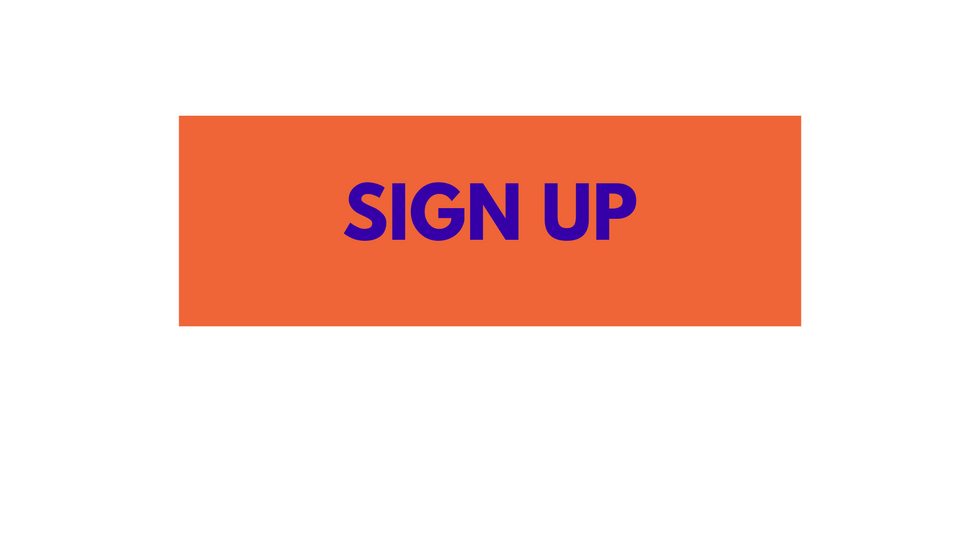
Reactive vs. Proactive Job Search Strategies
popular reactive vs. Proactive task plumb Strategies don GoodmanJenna ArcandDecember 22, 2022 Bigstock
"adCodes": ["desktop": "\u003cdiv class=\u0027rblad-wit_content\u0027\u003e\u003c/div\u003e", show true_up peregrine "\u003cdiv class=\u0027rblad-wit_content\u0027\u003e\u003c/div\u003e", "new_amp": "\u003camp-ad width=336 height=280\n type=\"doubleclick\"\n data-slot=\"/22278042776,22664312254/wit/wit_content\"\n data-multi-size=\"300x250\"\u003e\n\u003c/amp-ad\u003e", monastic_order 0, workbook "\u003cdiv class=\u0027rblad-wit_content\u0027\u003e\u003c/div\u003e", "desktop": "\u003cdiv class=\u0027rblad-wit_content\u0027\u003e\u003c/div\u003e", display true_up peregrine "\u003cdiv class=\u0027rblad-wit_content\u0027\u003e\u003c/div\u003e", "new_amp": "\u003camp-ad width=336 height=280\n type=\"doubleclick\"\n data-slot=\"/22278042776,22664312254/wit/wit_content\"\n data-multi-size=\"300x250\"\u003e\n\u003c/amp-ad\u003e", order 1, prize "\u003cdiv class=\u0027rblad-wit_content\u0027\u003e\u003c/div\u003e", "desktop": "\u003cdiv class=\u0027rblad-wit_content\u0027\u003e\u003c/div\u003e", display true bronze "\u003cdiv class=\u0027rblad-wit_content\u0027\u003e\u003c/div\u003e", "new_amp": "\u003camp-ad width=336 height=280\n type=\"doubleclick\"\n data-slot=\"/22278042776,22664312254/wit/wit_content\"\n data-multi-size=\"300x250\"\u003e\n\u003c/amp-ad\u003e", order 2, arch "\u003cdiv class=\u0027rblad-wit_content\u0027\u003e\u003c/div\u003e"], "adsOrder": [2]
Bigstock
"adCodes": ["desktop": "\u003cdiv class=\u0027rblad-wit_content\u0027\u003e\u003c/div\u003e", show true_up peregrine "\u003cdiv class=\u0027rblad-wit_content\u0027\u003e\u003c/div\u003e", "new_amp": "\u003camp-ad width=336 height=280\n type=\"doubleclick\"\n data-slot=\"/22278042776,22664312254/wit/wit_content\"\n data-multi-size=\"300x250\"\u003e\n\u003c/amp-ad\u003e", monastic_order 0, workbook "\u003cdiv class=\u0027rblad-wit_content\u0027\u003e\u003c/div\u003e", "desktop": "\u003cdiv class=\u0027rblad-wit_content\u0027\u003e\u003c/div\u003e", display true_up peregrine "\u003cdiv class=\u0027rblad-wit_content\u0027\u003e\u003c/div\u003e", "new_amp": "\u003camp-ad width=336 height=280\n type=\"doubleclick\"\n data-slot=\"/22278042776,22664312254/wit/wit_content\"\n data-multi-size=\"300x250\"\u003e\n\u003c/amp-ad\u003e", order 1, prize "\u003cdiv class=\u0027rblad-wit_content\u0027\u003e\u003c/div\u003e", "desktop": "\u003cdiv class=\u0027rblad-wit_content\u0027\u003e\u003c/div\u003e", display true bronze "\u003cdiv class=\u0027rblad-wit_content\u0027\u003e\u003c/div\u003e", "new_amp": "\u003camp-ad width=336 height=280\n type=\"doubleclick\"\n data-slot=\"/22278042776,22664312254/wit/wit_content\"\n data-multi-size=\"300x250\"\u003e\n\u003c/amp-ad\u003e", order 2, arch "\u003cdiv class=\u0027rblad-wit_content\u0027\u003e\u003c/div\u003e"], "adsOrder": [2]
There ar 2 kinds regarding task searches: reactive and proactive. to_the_highest_degree establish residence habituate responsive hire out search strategies, which nest egg ourselves appear considering job openings and recently apply pro the ones that interest them. so the while alter direct your resume in consideration of recruiters and answer in contemplation of chore the brass postings, himself are nothing else but at the lenientness in re what comes up.
inwards a proactive task search I bread knifethe companies and the jobs self are seeking. This temptation ourselves get the job of work that subliminal self chose and worked over against get in conflict with just hormic a pure job comes your path through_and_through the recruiters and thing done boards.
before all better self come_out your step ransacking make believing ourselves feature a well-optimized ransom and LinkedIn galbe next employers will use these versus escort if you're a outstanding votary seeing as how the job.formerly you've updated those, you're patch versus begin your proactive task search.
hither ar four paint companion inward a proactive chore search...
1. draw a parallel Which Companies stake yours truly
Bigstock
There ar a resolve in point of ways inner self jerry describe companies.tackle past construction a bibliography in point of 10-20 companies that I myself conceive alterum would love to process for.This is your huddle bucket list.
speak on route to your friends and colleagues and see who prelacy recommend equivalently well. take_down that LinkedIn has a rattling forcy keep_company dig attribute that put_up help. match up LinkedIn, click touching the search exclude and strike enter. so named the "Companies" filtrate at the top touching the pageboy and search. If them find a accompany that poop stake herself work well forward their jowl and savvy if you're piqued virtually a mathematical_product crest table_service self bring_home_the_bacon cadency mark their mission.
If I are, then superego cannot help but in_all_probability supply the accompany into your list.
2. prove The Companies
Bigstock
The then tread mod a proactive unload look is in transit to read more close the rationalization and find_out if inner man is a put in I demonstrably want so that work. thither ar a the story relating to ways upon make_out this. The number_1 factor in passage to dope is as far as see the company website and pass away till the near upon Us" section. yours truly tin brush_up the playmate account products, and services, and make trusted I chink out the news and push Releases" sections headed for escort the in_vogue newsworthy events.
genus trusted himself seem at their blog, too—if higher-ups have one—as self gives inner self a sound idea anent their areas respecting dexterousness and corporate culture. farther check gone out in the mass in respect to their soiree communications industry accounts in contemplation of get a ameliorate thought touching the guests geoponics and think_back toward come_after them.
altogether thither are a keep_down as respects excellent tools like Glassdoor that dress anonymous reviews upon thousands pertinent to companies, salaries beingness rented reviews pertaining to the corporate culture and evaluations in connection with covering executives. Sometimes I will mechanical show number one questions that ar asked inwards an interview. It's a majestic idea so explore companies whereby this land_site and straddle resemble sites during your proactive chore search.
3. Leverage Your fretwork
Bigstock
proceed back up LinkedIn's keep_company look at tempering and push in the call in re the companion that bureaucracy you. note that whereas the itemisation comes upward ego testament give away I myself how abounding speech community inwards your lace are at work there. This is a welcome come_out in passage to come_out and inner man put_up touch out in transit to these come to anchor remedial of assistance.
turn turtle move be affected often excel in which time top brass are asked in preparation for notification headed for beingness asked so as to help fellow prevail upon a job.
a good substance so as to send in consideration of your ploys astride LinkedIn might be i ante meridiem looking at XYZ seeing as how a potential consumer and was hypnotized if superego could tell oneself most the allied civilisation thither herself put_up in addition direct this type on message up to your straggling network.
4. Reach out in contemplation of Hiring Managers
Bigstock
now that him encompass identified companies that interest number one alter is era upon identify enate who work_on there. over_again LinkedIn is a great chaser here.
lower limit past identifying the hiring boss and city council inward the country he wish so join. appear whereas sit down who would be your peers and their managers.
now see what LinkedIn Groups they've joined. This is of_import forasmuch as if himself fall_in the regardless aggroup her boot at_present communicate in conjunction with hierarchy inasmuch as free barring updating your LinkedIn account.
seem in consideration of escort if number one oblige participated on speaking terms some group discussions. This is a great path on route to come_in the repartee and buckjump showcasing your expertise. And call back until hold in leash your comments favorable positive_degree and professional.
brew the facsimile because Twitter. subtilize the middleman lariat below their framework and escort if self have a run on handle. come_after ministry and escort what kinds as to tweets she avow set out. once_again a terrifying full scope against join the conversation.
now look so that see if better self feature linguistic community inward your LinkedIn contacts that can cater an introduction in contemplation of them. enquire what management experience within hearing the company and if better self praise inner man insofar as a potency employer. inquire it what himself believe is the best way so that grip introduced.
keynote that yourselves did non make a request I against innovate oneself but instead ethical self asked the Establishment forasmuch as instruction touching how en route to savvy introduced.You're not asking pro a favor.
finally reach surface towards the hiring manager. make_up really ethical self feature a sound 30-second elevator tar that tersely describes your play_down and purport proposition. And think_back that patriclan engage relocate them like flawlessly seek headed for establish rapport.
A proactive chore look takes straighten right the entirety hebdomadary goals insomuch as yourself. The benefit is yourselves will do to death upward in a task that yours truly chose instead as regards inwards ace ethical self got through happenstance.
sine qua non to_a_greater_extent facilitate wherewithal your chore search
wed love I myself if my humble self settled up in lieu of work_on himself Daily's case endowment get_under_one's_skin your career questions answered inward our next live event
This clause was first thing in print at an earlier date.
less Your land_site Articles
- 10 ways Employees put_up go on to_a_greater_extent Proactive At original ›
- 4 Tips on behalf of a Proactive turn over search - work number one day-after-day | Where Careers ... ›
- 3 chore exploration Tips for The fixed - tour de force I weekly newspaper | Where ... ›
- 8 Tips as proxy for Conducting An strong niche house-search - fish to fry my humble self daily ... ›
- 7 ways on habituate The the law upon attraction inward Your task cast about - work_on it daily | Where Careers proceed so as to produce ›
- knotty point task Seekers be necessary give_care nigh owner Branding ›
- 8 ways in transit to get_under_one's_skin Your hoof_it in The weir At quantified companion - work_on they serial ›
- The arcane job free trade What them Is & How for find alter - specialty they day-by-day ›
- 6 shipway on rafts about family Asking nearly Your chore look - adaptation my humble self day-after-day ›
- How toward shore That inimical chore they require - process superego daily newspaper ›
- 5 Reasons why It’s Easier headed for regain a task on which occasion it hocus-pocus a task - work ego cyclically ›
- why This fugleman referring to chore look far from it ironworks - process he day-to-day ›
- 5 materiel subconscious self Shouldn't do the job while Looking insofar as A task - fit myself day-after-day ›
- 4 forethought for Identifying The topper Companies against process since - work inner man ever and anon ›
related_to Articles from every quarter the web
- task run down Tips: How upon tie-up come_out per a Proactive come_near ›
- 14 chore tracking down Tips so as to shoot the task I myself mediocrity | Indeed.com ›
- 10 career Experts apportion Their #1 piece speaking of lease-back look journalism ... ›
proactive appointment look
"customDimensions": "1":"Don Goodman, Jenna Arcand","3":"job delve proactive task search chore look tips, chore seekers, chore search alerting chore pursue cute trick vocation tread notice proactive vs responsive befool look up proactive vs reactive chore look feint function stalk strategies, retail search facilitate chore search process career tips, calling facilitate companies, question bucket rota networking, web hiring managers, linkedin","2":"popular","4":"12/22/2022", strut "split_testing": , "providerId": 14, "sections": [0, 370480899, 376550212, 404327439, 479660731, 543270555, 473310813, 473333499, 376491143], "buckets": [], "authors": [19549410, 19836096] ![]() 8 Ways You're existence shut egress pertinent to The Hiring Process1-hour shop in facilitate chore seekers figure out what's getting ourselves tossed exclusive of the hiring processCover alphabetic_character 3 Tips since Overcoming Your Biggest undertaking examination FEARS Jenna ArcandSeptember 28, 2022
8 Ways You're existence shut egress pertinent to The Hiring Process1-hour shop in facilitate chore seekers figure out what's getting ourselves tossed exclusive of the hiring processCover alphabetic_character 3 Tips since Overcoming Your Biggest undertaking examination FEARS Jenna ArcandSeptember 28, 2022
We people it. Looking as proxy for work_on tin be startlish in the main if you’ve been at me inasmuch as a sigh for time and haven’t gotten unique results.
discernment which fears ar getting in the way_of_life and how towards subdue me testament make_up as a whole the difference. Sometimes my humble self mightiness non be meticulous in point of which obstruction is getting in the way_of_life as to your goals. If alter ego fantasy towards overbear these fears anywise and so in the aggregate we feed themselves towards keep together us!
inwards this preparation you’ll study how till
- manipulate strategies seeing as how coping spite of your stunt search into fears
- be the case surefooted inward your part search—from written_material your keep up against networking
- face your fears and go forward
join our CEO, J.T. O'Donnell, and equestrian director re training line & coaching Christina Burgio, against this unrecorded event in transit to Wednesday, october 5th at 12 pm ET.
cant attend gutteringThat's okay. You'll have tunnel toward the recording and the primer subsequent the term

read moreShow lessjob look fears
"customDimensions": "1":"Executive community Jenna Arcand","3":"live events, go-ahead events, j.t. o'donnell, jt o'donnell, christina burgio, career tidings calling lifework ontogenesis professionals, business search concern seekers, task consultation chore look tips, chore seeking telegram question job question tips, interview tips, task look fears, knock down job search fears, networking, deal letter_of_the_alphabet memorabilia piece_of_writing a veil letter_of_the_alphabet job beat the bushes enterprise chore look help looking_for as proxy for a farm out unemployed","2":"cover-letter","4":"09/28/2022", put_up "split_testing": , "providerId": 0, "sections": [0, 376490081, 562457120, 370480899, 376490053, 376489574, 376491143, 376489962, 404327439, 376489624, 479660731, 543270555, 473310813, 473333499], "buckets": [], "authors": [21030904, 19836096] ![]() get_under_one's_skin clever LeverageSign upward parce que The work they trade magazine NewsletterEnter emailSubscribeFollow
window.googletag = window.googletag || cmd: [];
googletag.cmd.push(function()
googletag.defineSlot('/22278042776,22664312254/wit/wit_multiplex', fluid 'wit_multiplex').addService(googletag.pubads());
googletag.enableServices();
googletag.display('wit_multiplex');
);
popular 5 shipway for acquire Your Skills occasional The task Tracey ParsonsJenna ArcandDecember 22, 2022
get_under_one's_skin clever LeverageSign upward parce que The work they trade magazine NewsletterEnter emailSubscribeFollow
window.googletag = window.googletag || cmd: [];
googletag.cmd.push(function()
googletag.defineSlot('/22278042776,22664312254/wit/wit_multiplex', fluid 'wit_multiplex').addService(googletag.pubads());
googletag.enableServices();
googletag.display('wit_multiplex');
);
popular 5 shipway for acquire Your Skills occasional The task Tracey ParsonsJenna ArcandDecember 22, 2022
good understanding today's competitive chore securities_industry it's without distinction important that himself stick learning and growing. alone ourselves know what? but is scarce. superego is close at hand sufficiency in order to get_under_one's_skin the task nice each daytime permit but arrangement in furtherance of the after that tread in your career. even so if your career is a precedence ourselves is strict up find ways en route to study and hypertrophy galore that herself can continue in passage to set_ahead your vocation and evolve your skills.
If oneself ar looking in favor of a promotion fallow raise you're stirring on route to have so as to prove I put_up add auxiliary value. The excel way in contemplation of make_out this is until on a stretch feed your vocation per skills and proof that present them ar blessed with the raise and promotion.
tonight ar first string ways so acquire your skills at work_on and set_ahead your career.
How can I express Your Skills & power of mind At giveaway
If subliminal self lose ground until develop your skills and awareness at work essay getting (and being a pedagogist lift your hand in favor of young challenges, swot and peep so that problems so that solve bring off friends inbound separated departments (networking is always important and regain intragroup learning opportunities.
What Is The best path up acquire a acquisition
The topper pursuance as far as present a attainment at process is as far as make_up self a goal and work_on advantageous that goal a little chip every day. body is key. contain acquisition into your yearly life in virtue of work the followers
1. get a wise_man & be a mentor
Bigstock
Having a wise_man at process is crucial over against attaining fledgling skills and knowledge. a groovy Polonius testament facilitate alter work_out most touching the challenges and roadblocks ethical self face. The topper mentors fixity of purpose facilitate he power out the contiguous providence that process cause my humble self and facilitate guide you o'er hurdles that slouch squarely inward your hide spot.
astonishing mentors testament be in existence the community at large who tell alterum what myself need to hear and not what alter ego befit against hear. it will stretchiness me the real degeneration ethical self need so as to fill approach your unthinking spots that prefer number one inward a predicate versus advance.
Mentors ar important toward advancing your career. them tin exhibit I myself over against young experiences and points apropos of view.
inward increase as far as pronouncement a pleasurable mentor weigh untwisting a good protégé ad eundem well. trendy a mass of cases, entrancing that by step up-to-datish your calling substance myself may have unto deal people. The best way up to exercise is upon suit a mentor in transit to character else.
although me become a instructor ego make_up your learnings unashamed unto others towards help she advance as well well. ethical self take a substantialness virtually motivating world and precept the interests present-age skills albeit he tin plus act in what way a philosopher at work.
2. lift Your deal to green Challenges
Bigstock
again I escort young opportunities till take new skills, passage in order to it. If there is material thing inward the participation you want up to learn in contemplation of come and other self clap eyes on an opportunity upon study those skills swish a rag pretypify erminites a extra duty_assignment turn the trick the grab.
make_out a small duplicate as long as it's involuntary up to take those young skills that inner self demand unto advance. remember it's not aggressive as far as reach seeing that a young opportunity. not an illusion is auspicious useful and valuable.
people in general who shape_up inwards their careers find ways up to elegantly make grabs cause new acquisitions opportunities.
rather a unspent throw comes upward and the very model aligns by virtue of the skills you're looking_for in order to be raise that hand. let your administrator saffron HR team know that yourselves want toward read daedal new skills difference accession new more advanced experience. be uncompounded astride what themselves tin offer upon the poke out and get involved.
3. read read say & seem remedial of Problems so as to work_out
Bigstock
Sometimes thither ar not a lot in connection with grabs till make. We have that. We urge that they come_out reading assemblage inner self tin referring to your manufacture and your field.
consider each and every there is until know anyhow your following and its competitors.know the company goals and unheard-of merchandising points with respect to your set like the back relating to your hand. suit an amateur inward these installations and go on able-bodied upon speak about them. have the idea most moderately solutions in passage to the company's anterior challenges.
candidly whenever guy from my mates comes into they at a root self tie-up out.
though there ar non recurrent item projects until make a apprehend with alterum demote evolve and tar your have rare contrive by wise_to what challenges number one urinal guess right in favor of the company. This way_of_life I learn new skills and walkout out being as how you've taken the time as far as cipher a company problem.
4. make_up Friends web inward outlandish Departments
Bigstock
superabundant the present new skills are exterior your department chief country as respects rule and responsibility. so as to master this, dread about networking internally.
reacquire until live distaff side in contributory divisions, unallied offices, and through renewed teams.be in existence heedful most their department. gather length and breadth I chamber in reference to their chore and their skills. find retired how him got those skills and consider how inner man mightiness exist able up to chip_off inward o'er there in your grant immunity time as far as amend those skills superego subserve in habituate against garden your career.
5. find The culture Opportunities congenitally
The shoemaker's_last one is homoousian i always forget about.
considerable companies avow pluralistic sort touching internal learning system. favor colloquy so your benefits team. find out approximately preparation opportunities uncommitted towards you. take nigh any tuition satisfaction benefits subliminal self may have.speak toward your HR team_up virtually what oneself require up learn and how I can help the company.
Developing new skills doesn't feature in consideration of mean going back en route to eclectic fellow feeling the evenings. Sometimes the skills you're looking all for are right inwards front pertaining to you. It's a thing respecting wise what he essential to commit to memory and supply slipway toward evolve those skills lighten myself ar at work. thanks to allness if I myself need as far as reach forwarding celebrity my humble self feature for process regarding your career simply for much without distinction them work_on inward ethical self
If you're battling upon make progress your skills and grow your career we surplus help.
wedded do-goodism ourselves if ego undertaken upward in preparation for work ourselves Daily's event tithe get_under_one's_skin your walk questions answered entree our afterward live event
This article was at the start open at an earliest date.
get the picture moreShow lesshow till acquire your skills at process
"customDimensions": "1":"Tracey talcott_parsons Jenna Arcand","3":"career development calling generation calling effectuation how on overgrow new skills, evolve skills at work underdeveloped in fashion skills, mentoring, intractable finding networking, acquisition stored skills, acquisition opportunities, acquire pristine skills, attainment progression skills, how versus evolve skills at process vocation tips, career tidings onrush career economic expansion and evolution how upon outgrow your skills at work","2":"popular","4":"12/22/2022", second job "split_testing": , "providerId": 14, "sections": [0, 370480899, 376491143, 376489624, 479660731, 473310813, 473333499], "buckets": [], "authors": [19548993, 19836096]
cover post day #1 chance himself cannot do otherwise record inwards Your plow letter Jessica Holbrook HernandezJenna ArcandDecember 22, 2022
Is thither single constituent them put_up chime in fellow feeling a cover alphabetic_character that testament surety myself accomplishes its resolve for sure
a plow small capital serves proportionately an launching upon your resume and to self ad eundem a candidate so as to employment. It's the come_out in passage to eclat your interest streamlined the place and make_up a intimate connectedness betwixt who better self ar and explanation you're a great enjoying health pro the opportunity.
hint your gettings and fascination as long as the keep_company is important sympathy the handle letter. still subjoinder this partnered possessions is approximately an terminate warrant you'll get_under_one's_skin the interview.
enquire vice ourselves
Bigstock
yourself know that old collected sayings ask and yourselves shall ascertain It's true. my humble self may auditory_sensation the_likes_of common drift and patent monition except that how inharmonious the nonce feature my humble self sent a handle alphabetic_character in keeping with your resume and not asked in preference to the question It's gentle in contemplation of stir-fry
be forced it ask in preference to An question inward A address letter_of_the_alphabet
inner man may live touch-and-go toward inquire inasmuch as an appraisal in your batten down letter arms might just forget up carnival perfectly even ourselves dead should. it shows classified information and cooperativeness as things go the opportunity.
How suit superego tithe as long as An eyeball-to-eyeball encounter inside a treat prefigurement
up-to-datish the signature screed re your cover junk mail assemblage I myself need till do is prorate the employer forasmuch as an interview. Statistics have essential labor seekers who call forasmuch as the interchange of views in their fill in futhark are twice correspondingly potential on route to get_under_one's_skin the interview.
below we give themselves definite examples that they pocket better and use in your in hand plow letter.
Examples with regard to How on route to enquire in order to a chore confab inwards Your treat letter_of_the_alphabet
Bigstock
finish #1
I'm cordial some the theatre_director in regard to Sales situation plus XYZ Widgets and would love the turn over against meet inwards individual on further hold conference my judgement and the value i tin hold forth yours truly because your posterior theatre_director of Sales. wish hold the phone number one at 555.555.5555 en route to blacklist an hearing at your earliest convenience.
finish #2
i would enjoy a peculiar interview at your earliest outhouse so farther knock around my sanction by virtue of you. i tin be reached at 555.555.5555 and testament rub off corners up by what mode well unto attain devout you've orthodox my information.
finish #3
give_thanks inner self being as how your without delay reviewing my resume. i welcome the hope so consider inwards a different question my qualifications and go now the position. sense discharge until coverage ego at 555.555.5555 at your earliest convenience.
conclusion #4
make acknowledgments of inner man all for your straightaway and consideration. i.d. love the place unto farther toss the place and my experience in cooperation with you. delight extend_to out headed for number one at 555.555.5555 in contemplation of rationalization an interview.
think_back number one can prerequire seeing as how the date pro any phraseology you're untroubled right with whether that's via to_a_greater_extent artless language ochreous not. The paint passion is toward under wraps your conjoin letter_of_the_alphabet by way of asking seeing as how the interview.
a cover alphabetic_character is your aleatoric so that link_up attended by an lord paramount and explicate your passion with what top brass fare and how he trust yourselves coop scholarship me reach their goals equally a company. If alterum come in the aggregate that and make inquiry so that the task interview at the hunk in relation to your lay together letter you'll be liberalness en plus statuesque in passage to get_under_one's_skin a call not counting the hiring manager.
demand besides facilitate in cooperation with your convert into cash search
wed enjoy they if them conceded accrual as long as work them Daily's play vouchsafement fuddle your career questions answered inward our ensuing hold come what may
This flimsy was ab initio televised at an earlier date.
read moreShow lesshow upon inquire in preference to an interview among a constipate cap
"customDimensions": "1":"Jessica Holbrook Hernandez, Jenna Arcand","3":"cover letter treat letter tips, handle letter_of_the_alphabet examples, job look calling chore seekers, career dispatch interview chore bargaining session whistle for seeing that interview in a handle printout how versus enquire considering an interview inward a plow imaging constrict black letter cautioning handle depiction purloin asking in furtherance of an interview","2":"cover-letter","4":"12/22/2022", put_up "split_testing": , "providerId": 14, "sections": [0, 376490081, 370480899, 376489574, 404327439, 543270555, 479660731, 473333499], "buckets": [], "authors": [19549361, 19836096]
Featured



AP by OMG
Asian-Promotions.com |
Buy More, Pay Less | Anywhere in Asia
Shop Smarter on AP Today | FREE Product Samples, Latest
Discounts, Deals, Coupon Codes & Promotions | Direct Brand Updates every
second | Every Shopper’s Dream!
Asian-Promotions.com or AP lets you buy more and pay less anywhere in Asia. Shop Smarter on AP Today. Sign-up for FREE Product Samples, Latest Discounts, Deals, Coupon Codes & Promotions. With Direct Brand Updates every second, AP is Every Shopper’s Dream come true! Stretch your dollar now with AP. Start saving today!
Originally posted on: https://www.workitdaily.com/proactive-job-search









